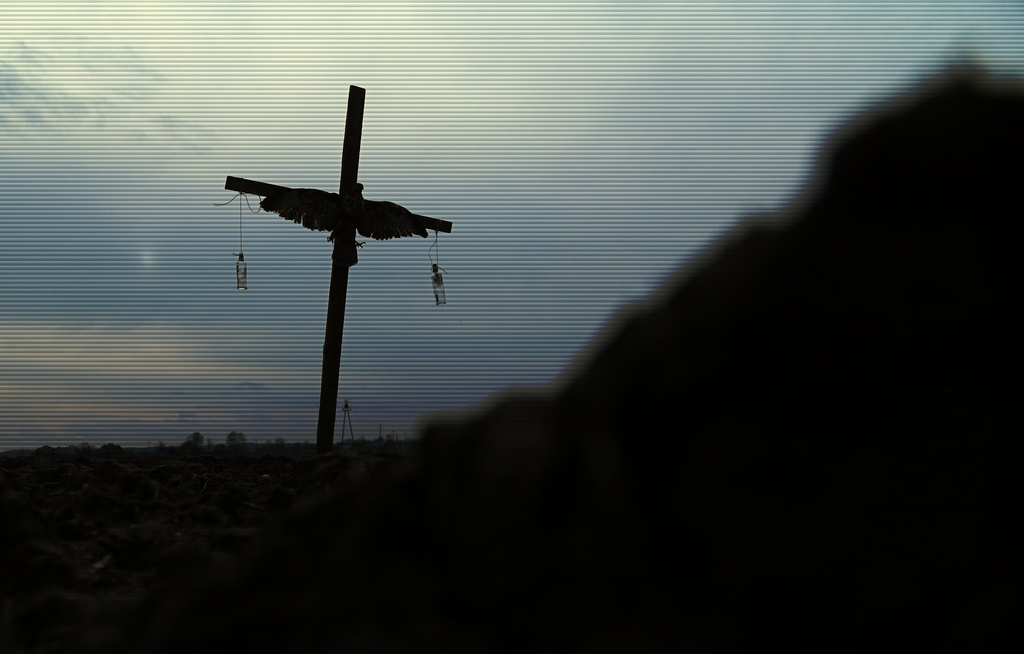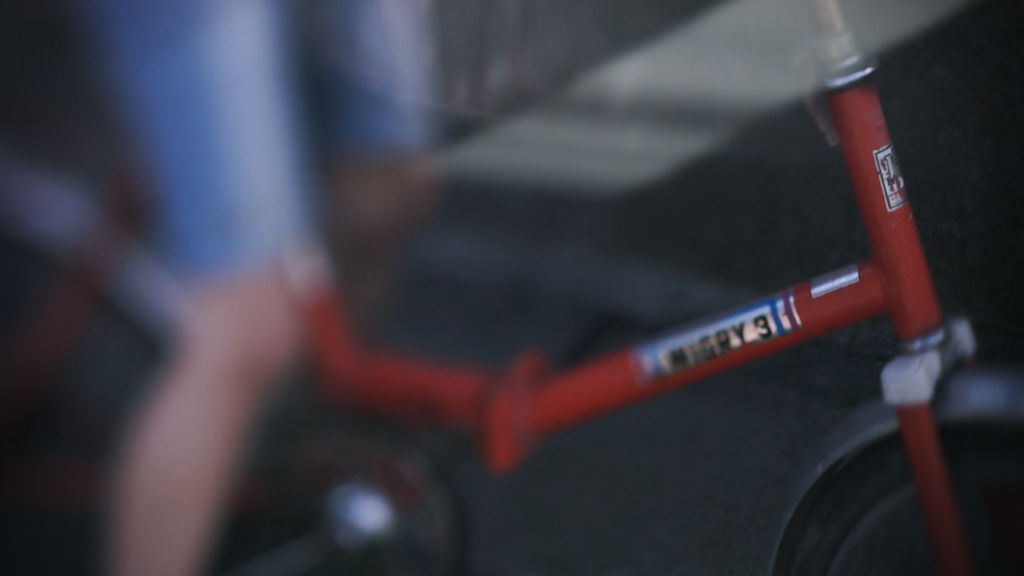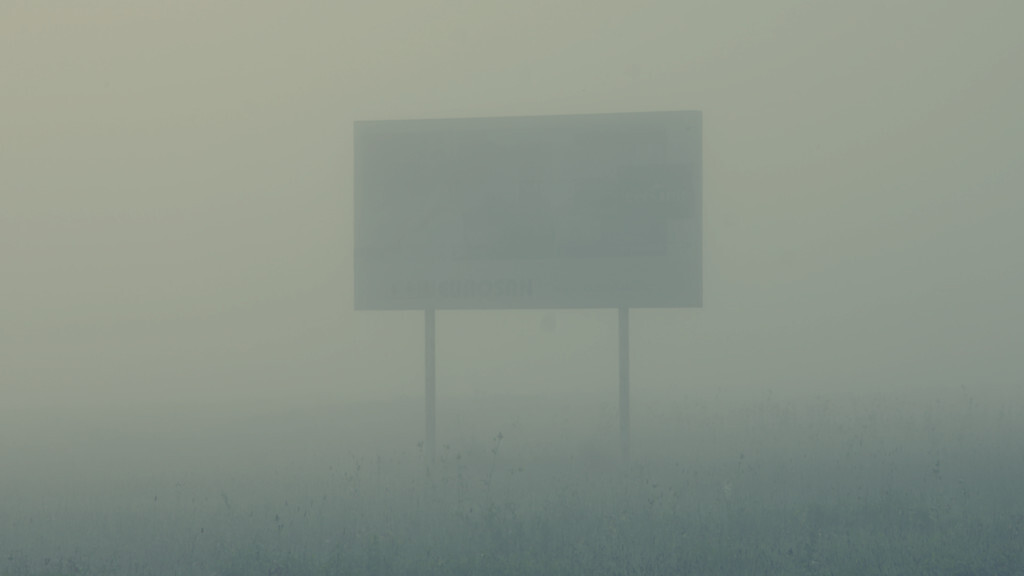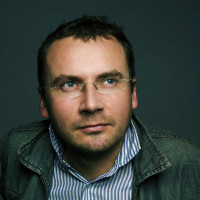Are Polish filmmakers suicidals?
Opera About Poland by Piotr Stasik was recognised at the 21st Ji.hlava International Documentary Film Festival as the best Middle and East European film. An essay on the state of the Polish nation in all its colours, it uses Stasik's archival material, new interviews and unique art performances in order to create a memorable experience for viewers even beyond Polish borders. Stasik (1973) is an experienced author of short and mid-length documentary films. His films 7 x Moscow, Travel Diary and The Last Day of Summer were screened at several European festivals. In this interview, he speaks about the creative process behind the concept of his latest film, and how it was received both in and outside of Poland.
I've heard that your documentary was first intended as part of a bigger project.
I've been collecting pictures of Poland on my camera and some interesting texts for many years. I showed some of them to my composer Artur Zagajewski, and he wrote some music to combine with them. From this we created a stage performance with actors, scenography and choreography, live music and video projection. This was debuted at the festival Sacrum Profanum in Cracow. But from the beginning we knew that the last step would be a documentary film.
Could one compare the experience of the staged Opera performance to the film, or did the documentary become a whole new creation?
The documentary was a step further in the development of my work. I took real people in real surroundings and had them do unrealistic things. I wanted to achieve something more. To cross some borders, to create new reality, to reach something stronger.
How were these two works received by critics and audiences?
It is not easy to compare. Firstly, because these are not easy forms – not all people like or are open to them. Secondly, because the work is about Poland, which I tend to criticize, and this is not necessarily accepted with ease by some Poles.
When you say the documentary is a "next step", it can be read as "it is more" or "better". Is this accurate?
There was definitely a shift into some deeper complexity. After the performance, I myself felt that in some areas I was too critical and I needed more sensitivity. That is why I put more children into the movie and made it partly a story about my childhood and growing up, which perhaps brings some hope into the story.

Opera About Poland
You are not only the director of Opera About Poland. You also stood behind the camera, edited the movie, and wrote the script. How much of the film is your own? And to what degree were you influenced by your colleagues?
I like to do all these things at least partly by myself, so that I can show what I want, not only to talk and give orders. But, of course, I also cooperate with many people. My film editor, Dorota Wardeszkiewicz, was very brave and willing to find and implement a lot of experimental solutions. Her editing of the film Elementary (1976) by Wojciech Wiszniewski was a big inspiration of mine.
And then I worked with five cameramen. It was not easy to recognise who made what in the editing room. Which means that all of them knew what we needed and found a shared path.
I also had a person who helped me with the libretto, my friend Lukasz Czapski, and one of the best dramaturgs in polish theatre – Piotr Gruszczynski.
With five cameramen, it must be hard to put it all together. So, is the final product more conceptual or intuitive? How precise was the script? Was there a place for improvisation?
At the beginning, I always create a strong and detailed concept so that I can work more freely and rely more on my intuition. It is necessary for me to prepare a structure and then move creatively within its borders. First you have to know what you want and how you want it – then you can be free in fulfilling your vision.
When you see the finished movie, how much of your first intention do you recognise there and how much of it took its own turn during production process?
The main idea remained the same, the form is very close to what I intended, but specific things, places and people are different. What I like is that somewhere in between the music, pictures and words, something new was born, something I didn't expect. In the end the movie is much cleverer than I imagined.
Why opera? Is it because your friend Zagajewski is an opera composer, or did you find here a deeper connection to Polish history? I recollect the saying that great classical arts like opera are unable to deal with the horrors of 20th century history – some of which happened in Poland.
I wanted to find a form that would be closer to poetry than just the standard "talking heads". I have also worked for many years with contemporary composers, so I have a lot of contacts and experience. In addition, I simply like this kind of music.
From the beginning, I knew that I wanted to use words in the movie and that the goal was to reflect the whole country – so we decided to use the name opera to imply the scale. Of course this is not pure form of classical opera; it is closer to a more modern variation. We want to utilize its spirit in these conditions.

Opera About Poland
Is the movie intended primarily for Polish audiences, or is it supposed to be more international? I would think that discussing a nation’s conditions with its own natives and with strangers would employ different language.
Before the first international screening I was afraid of the reaction, but now I know that this is far beyond being simply a film about my country. Some mechanisms are just universal. I met people from United States who told me that this story felt like their story too.
Don't you think that international audiences perceive Opera about Poland somehow differently? Do they react to different issues? Or do you really think the film can have the same meaning for all viewers?
I think it is more or less the same experience. Lazy thinking, reliance on stereotypes, living under the influence of religious institutions. Of course, there is a different scenography in every country, but these basic conditions are same in many places. So I believe the movie can speak similarly to people everywhere.
How was the film distributed in Poland? Strong creative documentaries in Poland are said to be rarely found in wider distribution or on TV, but are mainly screened at festivals. How many people saw your film in Poland?
We are thinking about distribution in cinemas. But this is 40 minute long film, so we need to link it with another mid-length production. The Polish TV did not as co-produce the film – they didn’t like my critical point of view. But we have had several screenings at festivals and possibly reached up to one thousand viewers so far. We are also thinking about screenings in small towns and villages, if we can partner with some other filmmakers. It would be wonderful to talk with local people about salient topics and questions.
State TV, among other institutions, seems to be very conservative in Poland. Was it hard to find producers?
Thank God there are local funds for movies, thanks to them we found the money we needed. There is a network of county support systems, independent of state funding. It doesn’t provide a great deal of money, but is now the main resource for Polish documentary filmmakers. We also got some money from the Polish Film Institute. Finding funding, however, was quite difficult then, and I think now it would be impossible. If you want to be supported by state funding, you can only speak positively about Poland. No one knows what will happen next. The director of the Polish Film Institute and some of the consulting experts were just replaced – things are getting even harder.
And yet you produce so many great documentaries! Like Communion or Over the Limit, which was one of the most discussed films at last year’s IDFA. Czech documentaries, unfortunately, don’t make such an impact.
Maybe harder conditions are better for artists? Or maybe we Polish filmmakers are just suicidals who will stop at nothing.
|
|
Piotr Stasik
Polish documentarian Piotr Stasik is the co-founder of the Association of Creative Initiatives „Ę”, an instructor at the “Film Kindergarten” of the Andrzej Wajda Master School of Film Directing. He has directed several short films, which have earned numerous awards. These include 7 x Moscow (2005), The Last Day of Summer (2010) and A Diary of a Journey (2013).
|



